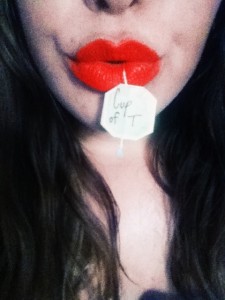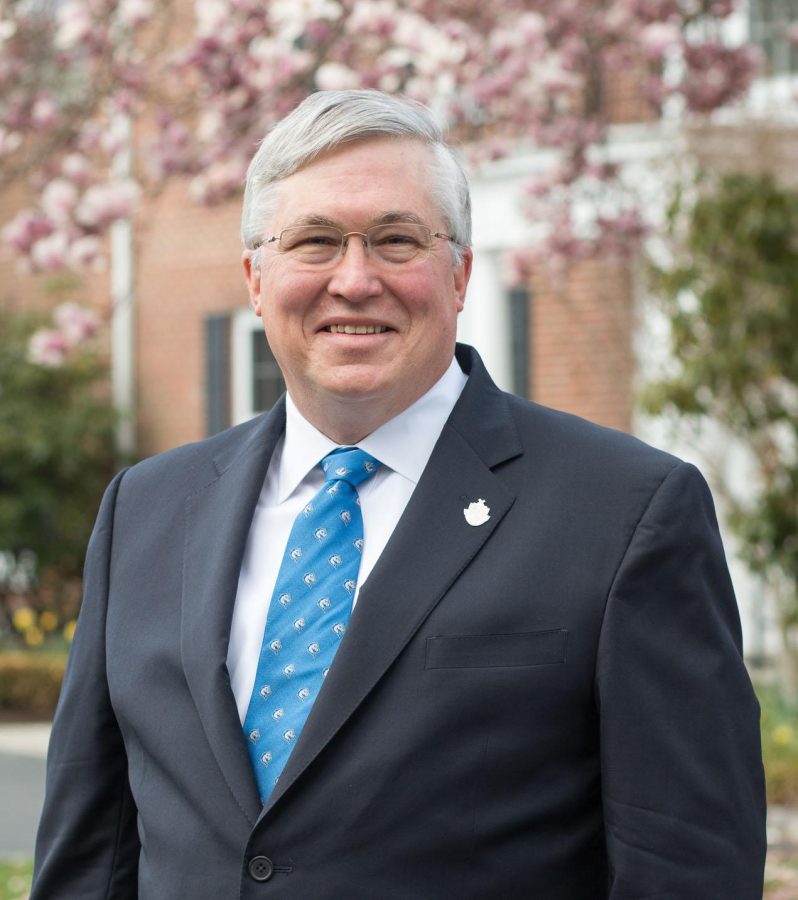Getting To Know Mercy’s President Hall
President Hall shares the importance of communication, embracing your college years and his plans as Mercy’s new President
Before now, he had probably already done a few interviews, answered monotonous questions about his visions for Mercy, and spoken into tape recorders while wincing for flashing cameras. As Mercy’s new president, Timothy Hall knew media attention was part of the job. Yet, with a friendly energy one could tell he was prepared for it – polished for it, even.
It’s hard to ignore his composed southern accent or the new scale of values he’s brought to the Dobbs Ferry campus: the type of president you’d vote for because he remembered your first name and used it when he shook your hand; the type a student body would probably nominate anyway, if the choice were theirs; the type of open mind that proves he is not only a man with experience, but a president with a plan.
A warm smile was stretched between his silver rimmed glasses and his yellow tie. It looked natural, as if it were a daily accessory to his outfit. Was a President supposed to look this relaxed? It is evident that his time as head of Austin Peay State University set the groundwork to take over at Mercy. Inside Verrazano Hall, the Texas native already seemed at home in his new office. After seven years in Tennessee, inheriting four campuses and a few thousand students might not be too distressing. It didn’t look that way, at least. Speaking openly from across a lengthy boardroom table, President Hall shared intellect, a few life experiences and his eagerness toward getting to know Mercy’s students.
“I always surprise a few students when I ask so sit with them in the cafeteria,” he chuckles. “Some conversations are long, others…not.”
He says this, understanding his finely pressed suit may be a bit out of place in the cafeteria. Sagging in sweats and hoodies, most students might first question what type of trouble they’re in before he introduced himself.
“I’m a college president,” he declares, as if every president chatted over ham and cheese in their own cafeterias. “That’s part of the job. I like being around the students.”
His deep voice echoes off the walls in his office. He’s just as curious about cafeteria customs as one student might be about a suit in the sandwich line. With another smile he folds his hands into a neat knot on top of the table. His ease seems to be contagious as the whole room exhales. After a slight pause, Hall reminisces on his second day on campus.
He took his lunch in the cafeteria. “There was only one girl sitting in there that day,” he said. Telling him most students took their lunch to the library seemed like a secret that shouldn’t be given away, like a student password that, if released, might rid entire media lab of its regulars. God forbid it be quiet in the library. He continued to reiterate their conversation. He asked to sit, she accepted, they broke bread. Just before he left he asked the student, who he remembered was a senior lacrosse player, what she liked most about Mercy.
“At Mercy I’m not just a number,” he repeats. Sitting back in his chair a little, he slows his tone. “To me, that is pretty…pretty.” He searches for an appropriate word before settling on “remarkable!” He says this with a touch of sentiment. Despite the short amount of time President Hall has been here, anyone could see that he was already proud to be a Maverick.
“I promise you,” he reaches further into his memory, “when I was an undergraduate, my first history class had 500 people in it and my philosophy class had about 1,000.” His thick brows pinch together in a confused expression. “I only saw the professor once for the final exam.”
He shakes his head. “That’s like factory education.”
Hall received his B.A. in philosophy from University of Houston before adding a graduate degree from Rice University and a law degree from the University of Texas. Hall later practiced trial law in Austin, Texas before becoming an academic administrator at the University of Mississippi.
“I first majored in music composition until everyone convinced me there were really big bucks in philosophy,” he jokes. “But I do believe everyone should study at least one year of Constitutional Law.” This time he’s not joking. “The world would be a better place.”
Looking at a newspaper today, who could disagree?
While Hall seems to encourage awareness for the rules, he also wants to cultivate campus culture. Holding up his ringed finger he counts off, “One.” He stretches it back with the other hand, “because it’s fun.” His comfortable smile returns. He knows that most students only need that one reason. “And two,” now counting off his pinky, “the more we help student plug into activities and school spirit, the greater chance we have toward handing them a diploma.”
Focusing on helping students persist is essentially why he believes communication is so important. Aside from sticking to the grind, Hall encourages students to really savor all that four years at Mercy may present.
“If I could advise students of one thing, it would be to drink it all in. ” Suddenly, Mr. President has evolved into something more than a politician in a nice tie. He has already given all the good answers, said all the right things. Now, he was speaking from his heart. “Experience this time of life,” he thumps the table with his hand, putting proverbial periods on the end of his words. “This place in life never comes again, and the moments which happen here are experiences that are hard to relive.”
His words hit heavy. At the end of four years, how many would be able to look back and know they did it right? Had his wave of intellect been produced by regrets of his own college years? Or was it just his philosophy of life and education working hand in hand?
For so many students, especially those soon to be graduates, college becomes a stressful middle stage before a career. The demand of life and dream jobs cloud opportunities that are available to us right now. President Hall’s conviction toward unity shows that he wants to hand out diplomas with purpose.
If there were one demand a student body could hope for, it had to be a President with sympathy and understanding toward collegiate revelry – a President with a lot of heart.
Contrary to his openness, Hall admits to being somewhat of an introvert. “In college I was kind of bookish, kind of quiet,” he continues in a whispered laugh. “The guy most likely to be standing on a wall at the party.”
Clearly, building open lines of communication between him and his colleagues had been a personal goal as well. He blushed as he took a moment to talk about his family and his wife, whom he met as an undergraduate in college. “I was a senior when we got married,” he said. “I made the mistake of breaking up with her our junior year,” he continues shaking his head. “It didn’t take long for me to realize I had made the biggest mistake of my life.”
He shape shifted for a second time. He’s a romantic. “I spent that whole year in emotional catastrophe,” he finished.
Despite the numerous titles he had carried, finding his first lady seemed to be his proudest accomplishment. Close to their 36-year anniversary, it was easy to see that the boy standing on the wall was still in love. For students reaching for the job and partner of their dreams, it would be easy to look at the newly appointed President for direction. He seemed to have it all.
Through years of experience, Hall has learned that career choices are dependent on life choices; most that are often made outside the classroom. That is, after all, what college is meant to do before ceremoniously kicking us out into the real world and asking, now what?
“You can trade money for time,” Hall says, “But it’s not always a good trade.”
A follow up question to his statement would be premature. The riddle deserved a moment for a receiver to soak in its full significance. It wasn’t a direct solution to a bright future, but more, something to think on.
He gives a quick grin, smaller than the one he greeted with. He didn’t seem the type to give away answers to success but rather enjoyed helping others find their own way: the type you’d vote for because he remembered your first name and used it when he shook your hand; the type a student body would probably still nominate, if the choice were theirs; the type of ambitious president Mercy needs.

Originally from Florida, Taylor now resides in Manhattan's Lower East Side. She has been fortunate enough to jump between both Mercy's Manhattan campus...








